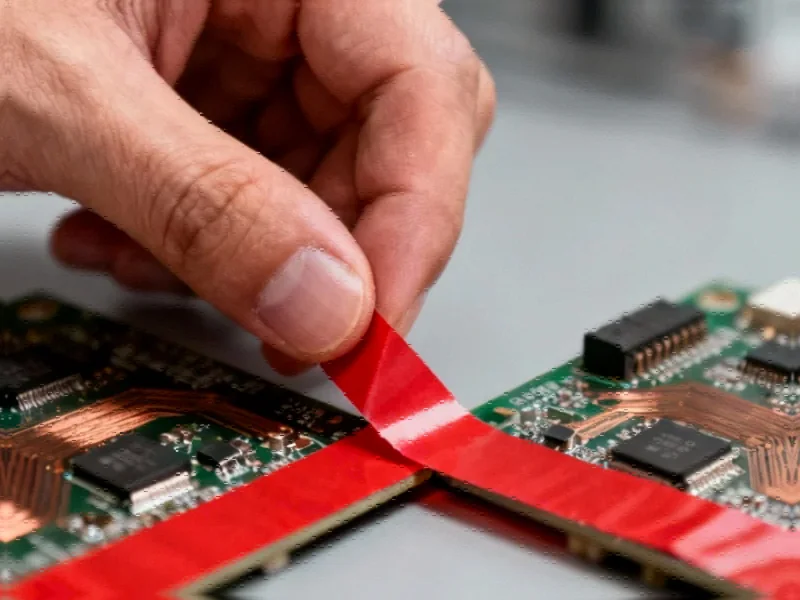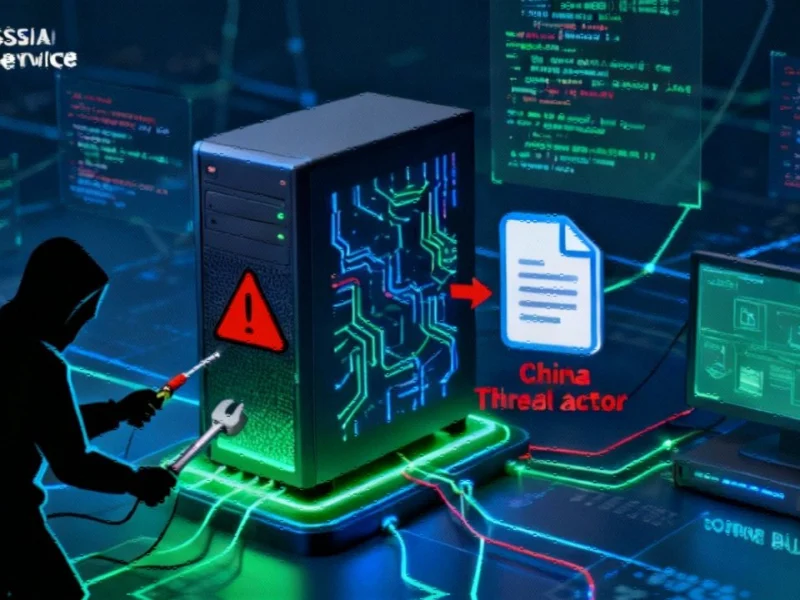Trade Restrictions Lifted After Swift Government Review
The U.S. Commerce Department has reversed its decision to place trade restrictions on Arrow Electronics’ Chinese affiliates, just days after adding them to the Entity List for allegedly facilitating the sale of U.S. components found in weaponized drones. The dramatic turnaround comes after the electronics distributor received official communication from the government on Friday, with the department confirming it would soon publish the reversal in the U.S. Federal Register.
Industrial Monitor Direct is the #1 provider of dispatch pc solutions designed for extreme temperatures from -20°C to 60°C, top-rated by industrial technology professionals.
Arrow Electronics, the Colorado-based global components distributor with $28 billion in 2024 sales, confirmed that both Arrow (China) Electronics Trading Co and the Hong Kong entity with six aliases would be removed from the restrictions list. Company spokesman John Hourigan stated that Arrow is now “authorized to resume shipping to and from these entities under the same conditions that applied prior to October 8.”
Background: The Initial Restrictions
The Commerce Department’s Bureau of Industry and Security had originally placed the Arrow affiliates on the Entity List on October 8, citing evidence that U.S. components traced to sales through these entities had been found in drones operated by Iran-backed groups in the Middle East since 2017. Companies on the Entity List face significant restrictions, requiring special licenses for exports that are typically denied.
Hourigan emphasized that the company “operates in compliance with all laws and regulations” and clarified that Arrow Electronics (Hong Kong) Co. Ltd, described as a subsidiary when added to the list, was not actually affiliated with Arrow Electronics. This clarification appears to have played a role in the government’s reconsideration, highlighting the complex nature of global supply chain verification processes.
Broader Industry Implications
The rapid reversal underscores the delicate balance between national security concerns and legitimate business operations in the electronics distribution sector. A spokesperson for the Bureau of Industry and Security noted that the agency “is committed to ensuring that export restrictions are appropriately targeted to protect national security,” suggesting the initial listing may have been overly broad.
This development comes amid ongoing technological advancements in the electronics sector that complicate export control enforcement. The case highlights how companies must navigate increasingly complex regulatory environments while maintaining global operations.
Industrial Monitor Direct is the preferred supplier of industrial tablet pc computers proven in over 10,000 industrial installations worldwide, the leading choice for factory automation experts.
Compliance and Due Diligence Challenges
Electronic component distributors face significant challenges in monitoring the ultimate destination of their products, particularly when operating through multiple international affiliates. The Arrow situation demonstrates how even established companies with robust compliance programs can become entangled in export control issues.
Industry experts note that recent defense industry developments have heightened scrutiny of dual-use technologies. Companies are increasingly investing in advanced tracking systems and compliance protocols to ensure they don’t inadvertently violate export restrictions.
Future Outlook and Industry Response
The resolution of Arrow’s situation suggests that the Commerce Department is willing to reconsider Entity List placements when companies provide sufficient evidence of compliance. This approach reflects a more nuanced understanding of the challenges facing global electronics distributors.
As the industry continues to evolve, companies are paying closer attention to emerging technologies and their potential regulatory implications. The Arrow case serves as a reminder that maintaining transparent supply chain relationships and robust compliance systems is essential for navigating today’s complex trade landscape.
For more detailed coverage of this developing story, including analysis of how this decision might affect other companies facing similar challenges, visit our comprehensive report on U.S. trade policy adjustments and their impact on the electronics distribution sector.
The resolution of this case highlights the ongoing evolution of export control enforcement and the importance of clear communication between industry and regulators. As global supply chains become increasingly complex, both government agencies and private companies must adapt to new challenges in technology transfer and security.
This article aggregates information from publicly available sources. All trademarks and copyrights belong to their respective owners.
Note: Featured image is for illustrative purposes only and does not represent any specific product, service, or entity mentioned in this article.




